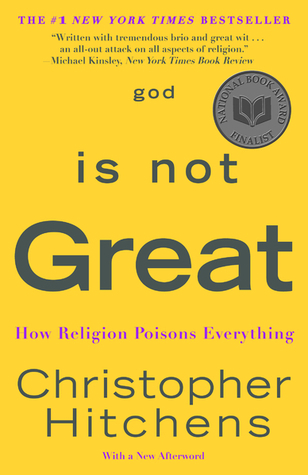What do you think?
Rate this book


307 pages, Hardcover
First published January 1, 2007




Hitchens: Religion is man-made. Even the men who made it cannot agree on what their prophets or redeemers or gurus actually said or did. Still less can they hope to tell us the “meaning” of later discoveries and developments which were, when they began, either obstructed by their religions or denounced by them. And yet—the believers still claim to know! Not just to know, but to know everything.